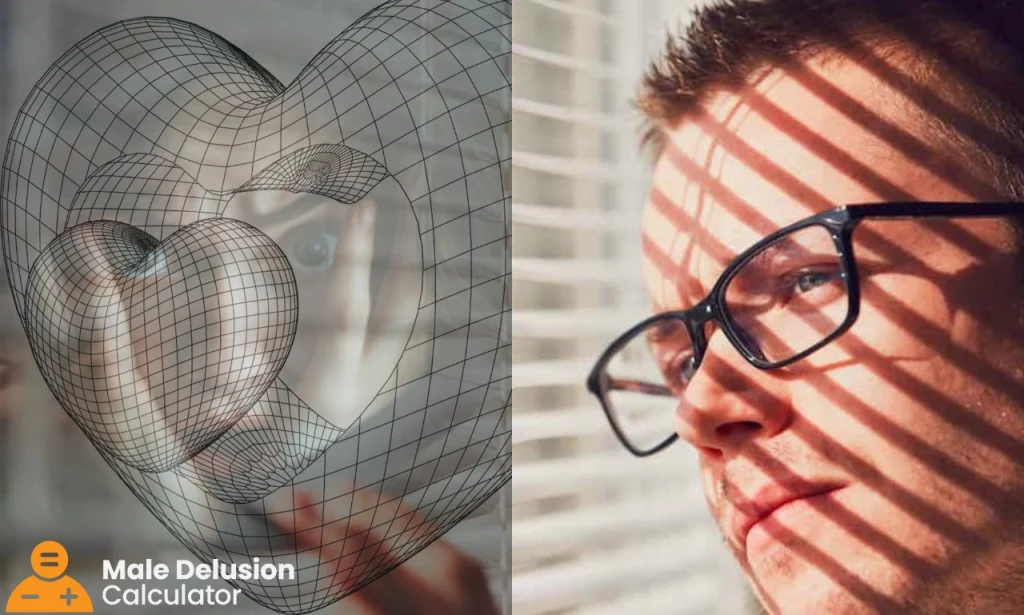The term paranoia is often associated with ‘delusion of persecution’ a condition where a person is obsessed with the idea that he is being persecuted with intent by other people. This belief is usually irrational and leads to serious disability of a person in the course of carrying out activities in society. This is why it is imperative to pay attention to this particular psychological disorder to address its symptoms, investigate the causes, and find the most optimal solutions.
Table of Contents
Defining Delusion of Persecution
A delusion of persecution is therefore regarded as a particular type of paranoid delusion. Those who suffer from this condition tend to consider themselves victims of different kinds of abuse and remain convinced that they are under surveillance, followed o, or plotted against, although there is no real grounds for this. It is not just that these thoughts are a problem, but they are stubborn and recur as well as are immune to arguments to the contrary.
Key Symptoms
The symptoms of a delusion of persecution can vary in intensity and may include:
- Intense Paranoia: An apparent sense of surveillance.
- Mistrust: Feeling paranoid over friends, family o, or any other colleagues with an implication that they want to harm one.
- Isolation: Avoidant behavior such as avoiding social contact because one fears being deceived or hurt.
- Hypervigilance: Being hypersensitive and easily aroused, fearful of all that may pose some sort of threat.
- Defensive Behavior: To the extreme of risking one’s life to avoid rumored persecutors.
Such symptomatology can cause much distress to the affected individual and impact one’s ability to forge and sustain relationships and be productive in the performance of their duties.

Causes of Delusion of Persecution
The exact cause of a delusion of persecution is not clearly understood but has been thought to be determined by genetic, biological, and social factors. Some potential contributing factors include:
- Genetic Predisposition
Scholars have proposed that genetic factors can predispose individuals to paranoid ideas, including persecutory ones: family history of schizophrenia and other psychotic disorders, in particular.
- Neurobiological Factors
One of the chemical imbalances that is thought could cause paranoid thinking is in the brain itself, neurotransmitters such as dopamine. These chemicals often get imbalanced: distorted beliefs can be caused by a problem in the way one perceives things as well as thought patterns.
- Environmental Triggers
There are immunological influences that can quite easily act as triggers towards paranoid thinking; stressful life circumstances, trauma, or long-term exposure to conditions that are high in stress might combine with immunological conditions in predisposed individuals. For instance, such factors as betrayal or abuse can make people over-sensitive to signals of threat and hence develop persecutory beliefs.
- Psychological Factors
Most important among them is the fact that certain temperamental dimensions like cynicism and especially publish an individual to paranoid cognition. Also, those, who have low self-esteem, and those who experienced significant losses can be vulnerable to the feeling of being targeted or becoming a victim.
Diagnosing Delusion of Persecution
Possible delusions of persecution can only be diagnosed with the help of a mental health professional after a proper evaluation. The process typically involves:
- Clinical Interviews: Interrogation of the individual and if consented, the family members to get detailed information about the symptoms and their effects.
- Psychological Testing: Organised screening tests to assess for other possible causes of symptoms and to identify or exclude any possible cognitive impairment.
- Medical Evaluation: Pre-employment screenings to rule out any medical conditions that may be adding to the symptoms.
Since paranoid ideation may involve ideas of persecution that are not pathologic there is a need to distinguish between the delusional belief of persecution and the normal worry over security.
Treatment Options
Usually, giving an individual a diagnosis of delusion of persecution, the treatment plan of choice comprises both medication and therapy to tackle both rationale and manifestation. Some common approaches include:
Medications
- Antipsychotics: These prescriptions assist with balancing out cerebrum science and decrease the force of distrustful contemplations. Regularly endorsed antipsychotics incorporate risperidone, olanzapine, and quetiapine.
- Mind-set Stabilizers: Distrustful reasoning and temperament issues Along with jumpy reasoning, temperament problems might be treated with lithium or valproate.
Psychotherapy
- Mental Conduct Treatment (CBT): Mental conduct treatment is utilized in the treatment of mental problems since it aids the rectification of contorted mental examples, the presentation of new adapting ways of behaving, and maladaptive idea design alteration.
- Steady Treatment: Guiding includes the utilization of individual, social, and close-to-home methods to empower individuals to manage pressure and work on their satisfaction.
Lifestyle Modifications
In addition to medication and therapy, certain lifestyle changes can support recovery:
- Stress Management: It is recommended to use such practices as mindfulness, meditation, and others that would add up to the creation of a low-stress environment.
- Social Support: Helping the individual attend social events or be provided with a support system can help remove loneliness and enhance the quality of life.
- Ordinary Activity: Actual work has been believed to have diminished the side effects of melancholy and uneasiness in people; accordingly, actual work is valuable to the emotional wellness of people.

Conclusion
Persecutory delusion of persecution conviction is a difficult state and a mental problem that may incredibly impact the nature of the patient’s life. Knowledge of the symptoms, possible causes, and available therapies would be important to the patients and carers. Consequently, access to timely and complete care can provide enhanced prognosis and enhanced living standards for people suffering from this disease.
Therefore, if you or anyone you know has some of these symptoms of a delusion of persecution it is high time that you consulted a doctor. Qualified mental health practitioners can offer much-needed support and advice in terms of how to contain the symptoms and maintain some level of control over one’s life. It is entirely possible to overcome the disease if the patient is willing to undergo treatment and follow the prescribed therapy.
